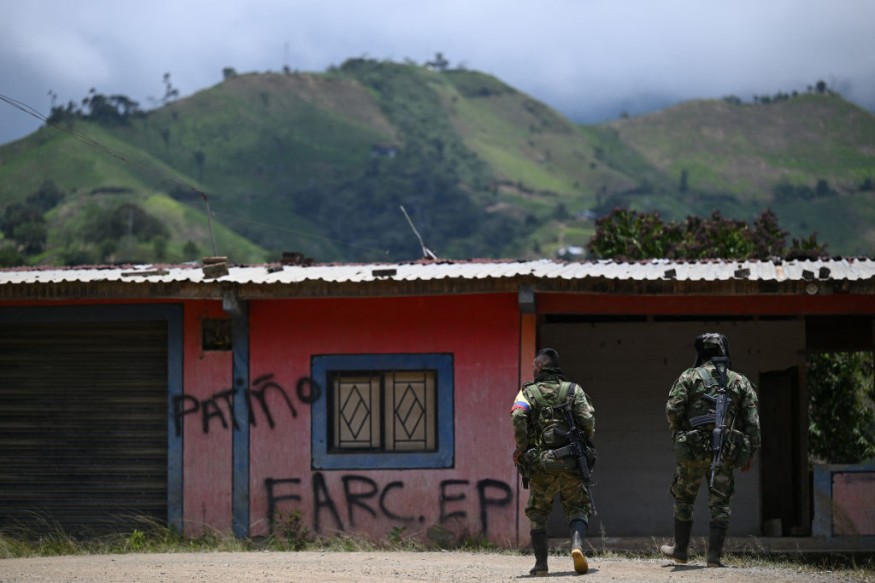Colombia: After EMC Attacks, Gustavo Petro Now Weighing In on Suspending Ceasefire With Rebels

Colombian President Gustavo Petro is now thinking about whether or not to suspend the ceasefire deal with the FARC splinter rebel group, the Estado Mayor Central or EMC, after a series of terrorist attacks in southwestern Colombia that resulted in the deaths of four people, including two police officers.
The latest were two separate attacks in the towns of Jamundi and Morales on Monday. The Jamundi bombing had no fatalities but left many people wounded. However, the Morales bombing and shooting attack by members of the EMC resulted in those four deaths.
The rebels attacked a police station in Morales with a bomb attack paired with rebel fighters storming in with guns blazing. They soon withdrew as soldiers arrived to reinforce them, but authorities soon found bombs being left behind.
"It has been the subject of consideration, discussion and is still a subject of analysis," said Defense Minister Ivan Velasquez during a press conference on Tuesday. "The president is weighing all the elements that we provide and it is ultimately him who will determine when and where there is or is not a ceasefire."
The EMC used to be part of what used to be Colombia's most infamous rebel group, the Revolutionary Armed Forces of Colombia, better known as FARC, which used to be the largest guerilla organization in the South American country. However, the group soon disbanded in 2016 following a peace deal with the government, but the EMC faction split away and rejected the deal.
Before becoming president, Gustavo Petro used to be a communist rebel fighter himself. He is using his history as a guerilla fighter to reach out to the other rebel groups still fighting to reach "Total Peace" and end the decades-long conflict. However, the road to peace has been rough as the EMC continued its terrorist activities while peace talks with the ELS recently broke down.
Colombia Partly Suspended Its Ceasefire With EMC Rebels Before Terrorist Attacks Continued
Gustavo Petro had been trying to make peace with the rebels since he took power. However, it was the government that partially lifted its ceasefire with the EMC after the rebel group's "non-compliance with the ceasefire."
READ MORE : Pablo Escobar's Brother Tried Trademarking Late Colombian Drug Lord's Name, European Court Says No
In its announcement of the partial lifting of the ceasefire with the EMC, the Colombian government noted that the military had resumed its "offensive actions" against the rebel groups in the departments of Narino, along with Cauca, and Valle del Cauca, where the two latest attacks happened.
France 24 noted, however, that the ceasefire remains in place in other regions, including the Amazon and along the border with Venezuela.
EMC Divided as Some Agree To Peace Talks With the Colombian Government
As to why there is only a partial ceasefire, Reuters reported that this is mainly because of the EMC having its own internal divisions with some of them choosing to abandon its peace negotiations with Gustavo Petro's government.
"We aren't all present at the same negotiating table," admitted EMC second-in-command Alexander Diaz Mendoza in an interview with Reuters. "It's a lie to say there is not a crisis."
Several elements of the pro-war faction of the EMC have launched repeated attacks on government positions in the three departments, prompting Petro to partially lift the ceasefire agreement.
This article is owned by Latin Post.
Written by: Rick Martin
WATCH: Rebel resurgence in Colombia: Farc-linked group EMC attacks state forces - Al Jazeera English
Subscribe to Latin Post!
Sign up for our free newsletter for the Latest coverage!

















